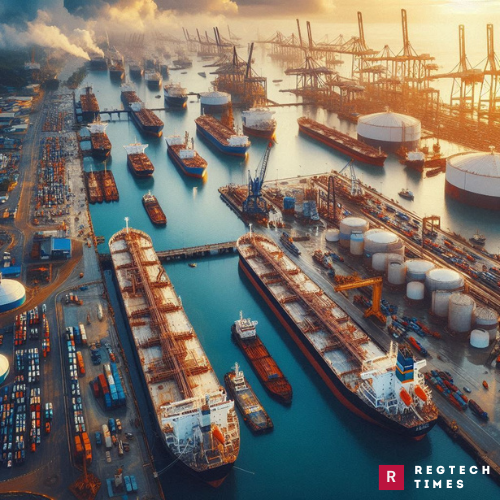In the wake of escalating American sanctions, Gabon has emerged as an unexpected refuge for Russian tankers seeking to navigate the treacherous waters of international restrictions. According to a recent report by The Wall Street Journal, the number of ships registered in this equatorial nation on Africa’s west coast has surged sixfold since the onset of the war in Ukraine, transforming Gabon into a critical node in the global oil supply chain.
Gabon: The New Home for the Shadow Fleet
Historically, many Russian tankers operated under the Liberian flag, a popular choice in the maritime industry due to its favorable regulatory environment. However, recent American sanctions have extended their reach to Liberia, primarily because the company managing its shipping registry is based in the United States. This shift has forced Russian tankers to seek alternative registries, with Gabon emerging as a prominent choice.
Among the vessels now flying the Gabonese flag are 50 tankers belonging to Sovcomflot, Russia’s largest shipping company and a global leader in the transport of hydrocarbons. This move is part of a broader trend that has seen over 100 ships re-registered in Gabon, as reported by Lloyd’s List Intelligence. These vessels are part of a secretive network often referred to as the “shadow fleet,” which is used to transship oil that is subject to sanctions. The phenomenon of Russian tankers in Gabon reflects a strategic adaptation to international pressures.
US Sanctions against Sovcomflot results in decrease in Russian Oil Exports
Since October 2023, the United States has imposed stringent measures against nearly 40 ships that flouted the Western price cap on Russian oil, set at $60 per barrel. This crackdown included sanctions on 21 Sovcomflot tankers and, in February 2024, targeted the company itself. In response, Sovcomflot and other Russian operators have sought refuge in jurisdictions like Gabon, the Comoros, and Cameroon, which provide a veneer of legitimacy while allowing these ships to continue their operations.
Renaming and Reflagging: Russia’s Sovcomflot Reacts to Evade US Sanctions
The re-registration of ships in Gabon is not just a bureaucratic maneuver but a strategic one. By adopting new or false flags, shipowners can obscure the origins of their cargoes and evade detection by international regulators. This practice has become increasingly common, with an estimated 15 percent of all tankers now sailing under such flags, according to maritime brokers and shipowners.
Harsh Realities for Crew Members
While the shadow fleet’s operations may be lucrative, the conditions for those working on these ships are far from ideal. Nigerian mechanic Umar Bello, who worked on a 24-year-old tanker registered in Gabon, described the harsh realities faced by the crew. According to Bello, sailors had to purchase their own medicines, subsisted on canned food, and lacked internet access while at sea. They also did not receive sick pay and were paid in cash, with one-third of their compensation given upfront and the rest at the end of the voyage. Despite these hardships, the financial rewards were significant, with crew members earning twice as much as they would on other ships.
Maritime Mystery Unfolds: German Prosecutors Probe Ship for Sanctions Breach
Risks and Dangers
The operations involving Russian tankers in Gabon are fraught with risks, not just for the crew but also for the environment. Many of these vessels, due to their age and lack of proper maintenance, are prone to severe breakdowns.
Primorye Maneuvers: Russian Oil Tanker Sanctions Evasion Near Singapore
Harry Teochari, a senior consultant at Norton Rose Fulbright, warned that many ships in the shadow fleet lack adequate insurance, raising the specter of environmental disasters. The Wall Street Journal reported that since 2022, at least 17 sailors have died in three incidents involving ships flying the Comoros flag, including a Russian container ship that broke in two.
Strategic Transshipments
Greek maritime officials have observed that ships registered under the Gabonese flag are actively involved in transshipping Russian oil off the southern coast of Greece. This process typically involves transferring oil to larger tankers for long voyages or to mask the origin of the oil and its byproducts. Such maneuvers complicate efforts by international regulators to enforce sanctions and ensure compliance with global trade rules.
The emergence of Russian tankers in Gabon highlights the complexities and challenges of enforcing international sanctions. As the shadow fleet continues to grow, the global community faces the daunting task of monitoring and regulating these clandestine operations. The situation highlights the need for robust international cooperation and innovative strategies to address the evolving tactics of sanctioned entities. For now, Gabon remains at the heart of a shadowy network that keeps the flow of sanctioned Russian oil moving, despite the best efforts of regulators to stem the tide.


